Essential Insights into the Language in Zanzibar

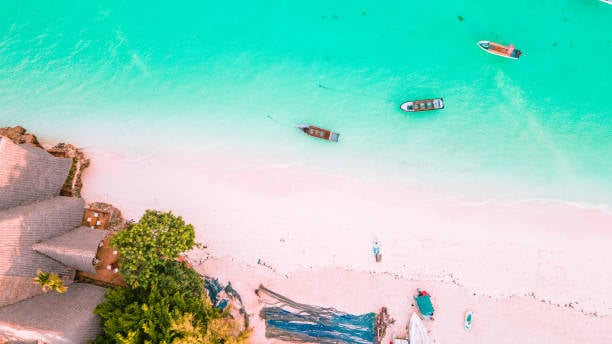
Introduction to Zanzibar
Overview of Zanzibar’s location on the East African coast
Traveling to Zanzibar is not only an invitation to explore breathtaking views of the east african coast and beautiful sandy beaches but also an opportunity to experience a living tapestry of culture and history.
In this article, we delve into the unique language in zanzibar that unites a diverse population of local people across this magical destination.
We will explore how language shapes communication and identity, how it reflects centuries of trade and exchange, and how everyday swahili phrases enhance the visitor’s journey.
The role of language here is not merely functional—it is a vibrant repository of art, history, and the collective memory of an entire community.
Whether you are a traveler eager to learn a few key expressions or a student of history fascinated by the interplay of african countries and european languages, this guide promises insights into the ways in which language serves as a bridge between the past and the present.
As you read on, you will discover that the spoken word here is as enchanting as the sunsets over the indian ocean.
Zanzibar’s Geographic and Historical Setting
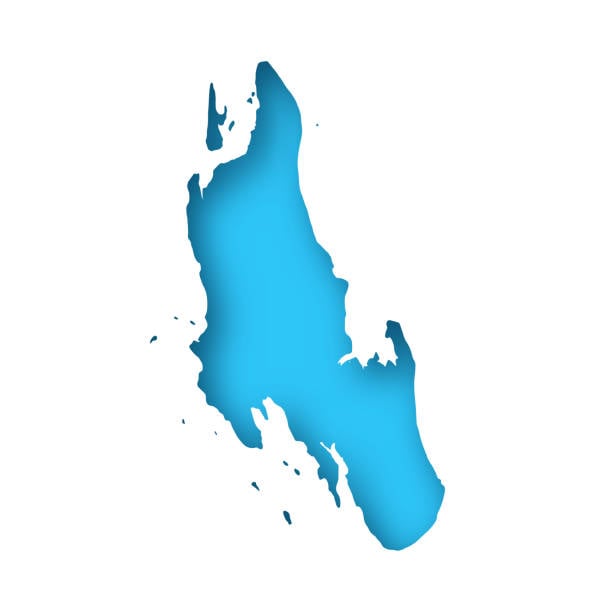
Zanzibar’s Map
Zanzibar is an archipelago located off the east african coast in the indian ocean.
Positioned near mainland tanzania and part of the expansive africa we know today, Zanzibar’s unique geographical placement has allowed it to become a crossroads of culture and trade.
The islands—often referred to collectively as the zanzibar archipelago—are home to a mix of language and tradition that has evolved over centuries.
A visit to Zanzibar offers more than just scenic beauty.
It invites you to immerse yourself in a historical narrative where bustling markets, ancient fortresses, and the echoes of the colonial period converge in places like stone town.
Even as modern influences seep in, the heartbeat of traditional language and swahili expressions remains strong among the local people, making Zanzibar a true gem on the east african coast.
Historical and Cultural Context of Zanzibar
Historical Influences and the Cultural Melting Pot
Zanzibar’s past is as layered as the diverse language spoken by its people.
For centuries, this island has been a melting pot where traders from numerous african countries met merchants from distant lands.
The influence of the arabic language blended with indigenous tongues and later, with elements of european languages, forged a unique dialect that continues to evolve today.
Even during the colonial period, when various powers vied for control, the intrinsic value of the local language was preserved through oral traditions and everyday swahili phrases.
The historical narrative of Zanzibar is inseparable from the enduring legacy of mainland tanzania, which has continually influenced the region’s development.
From the bustling corridors of dar es salaam to the storied alleyways of stone town, the island’s identity was crafted by centuries of contact with traders, scholars, and explorers from across east africa.
Today, remnants of these cultural exchanges can still be heard in the local cadence of conversation, where even a simple greeting reflects a history of global interaction.
Trade Routes, the Colonial Period, and the Rise of Stone Town
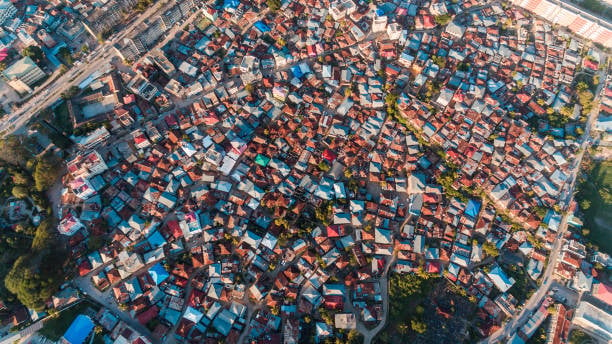
Stone Town, Zanzibar
During its heyday as a trading hub, Zanzibar’s strategic location on the indian ocean attracted merchants from africa and beyond.
The bustling markets of stone town thrived as goods, ideas, and languages circulated freely.
It was in these narrow, winding streets that the seeds of today’s rich language were sown.
The colonial period left indelible marks on Zanzibar’s culture—with traces of arabic language influences merging seamlessly with the indigenous tongue, creating an authentic fusion that still echoes through stone town.
The legacy of trade is evident in the frequent references to dar es salaam throughout the region.
Even as the city itself evolved into a modern metropolis, the historical links between dar es salaam and Zanzibar have remained robust.
Alongside the lively neighborhoods of stone town, smaller enclaves like Pemba Island also played their part.
Zanzibar’s role as a hub was further solidified during the reign of the united republic and the era when the spice islands flourished - events that not only enriched local language but also enhanced the global perception of the island.
Throughout these centuries, the bustling streets of Stone Town became a symbol of Zanzibar’s resilience and adaptability.
With each generation, the dialogue between the past and the present deepened.
Today, the vibrant chatter in Stone Town - echoing with familiar swahili phrases - reminds us that the island’s language is both a historical record and a living art form.
Even the legacy of Dar es Salaam is palpable in the voices of elders recounting tales of bygone days, a narrative that has been repeated at least five times over within the region’s folklore.
Linguistic Landscape of Zanzibar
Overview of the Swahili Language
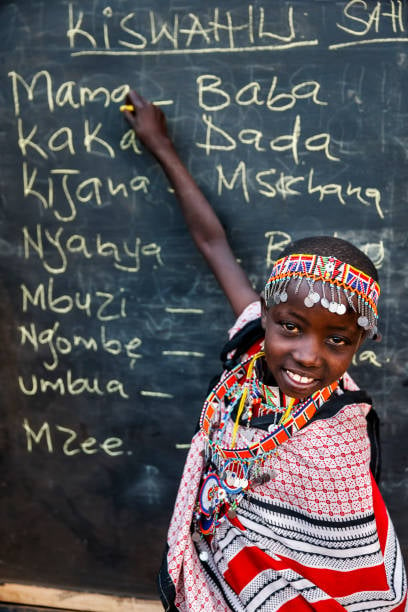
Little African girl during Swahili language class
The swahili language stands at the heart of Zanzibar’s identity.
Renowned as one of the most expressive languages in africa, it has evolved through centuries of cultural exchange.
Today, the swahili language is not only the medium of everyday communication but also a repository for centuries of art, poetry, and tradition.
Its grammar and rich vocabulary have been influenced by neighboring african countries, as well as by interactions with arabic language speakers and european languages.
This unique blend makes swahili a language that is both historically resonant and vibrantly modern.
Every day, visitors to the island are greeted with a series of warm swahili phrases that embody the welcoming spirit of Zanzibar.
As the primary official languages of the region, swahili and English coexist to serve both the indigenous population and international travelers.
In many parts of mainland tanzania and the broader east africa region, swahili functions as a lingua franca - a bridge connecting diverse communities across the zanzibar archipelago and beyond.
The evolution of the swahili language is intimately connected with the island’s maritime history.
The strategic location of Zanzibar on the indian ocean facilitated exchanges that enriched the local language.
Over time, native swahili phrases have become an essential part of daily life, ensuring that even as the island modernizes, its linguistic traditions remain robust and widely spoken.
The importance of the swahili language is underscored by its inclusion as one of the official languages in both Zanzibar and mainland tanzania.
Official Languages in Zanzibar and Mainland Tanzania
In Zanzibar, the status of official languages reflects a deep commitment to preserving cultural heritage while embracing global connectivity.
Swahili language and English are both integral to educational systems and everyday interactions, with swahili emerging as the language most widely spoken by locals. The effective coexistence of these languages - each with its own charm - demonstrates the island’s ability to balance tradition with progress.
Within the broader context of mainland tanzania, the dual usage of languages helps bridge the gap between generations.
Schools in urban areas such as dar es salaam and rural communities alike emphasize the importance of learning swahili phrases from an early age.
This practice not only enriches the linguistic skills of young learners but also reinforces the cultural identity that has made the region famous across east africa.
Swahili as a Lingua Franca in the Zanzibar Archipelago
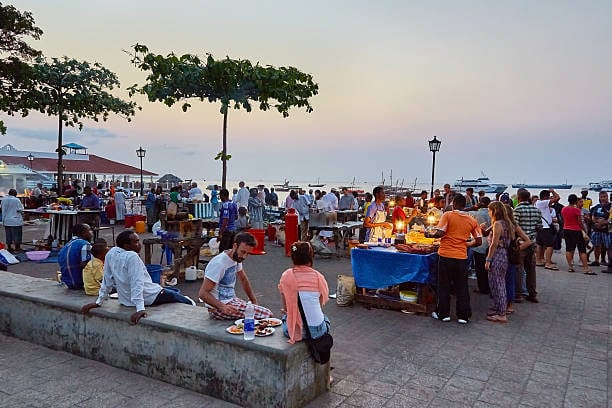
Evening food market at Stone Town
Across the zanzibar archipelago, swahili serves as a powerful tool for daily communication.
Whether in bustling marketplaces or quiet villages, locals rely on swahili phrases to connect with one another.
Even visitors quickly realize that these expressions are key to unlocking the warmth and hospitality that define the region.
In many instances, swahili has become the de facto lingua franca in a region where multiple dialects once coexisted, streamlining communication and strengthening community ties.
The influence of the swahili language extends far beyond the island.
In neighboring parts of mainland tanzania and even further into eastern africa, swahili phrases play a critical role in facilitating trade, diplomacy, and cultural exchange.
This linguistic cohesion is enhanced by the shared maritime heritage of the indian ocean, where countless traders once sailed to and from the island. As a result, even a casual traveler can pick up a few essential swahili phrases and feel immediately welcomed.
Everyday Language Use in Zanzibar
Essential Swahili Phrases for Travelers
For those embarking on a journey to Zanzibar, learning a handful of essential swahili phrases can transform a trip from ordinary to extraordinary.
Greetings are more than just words, they are keys to unlocking local hospitality.
Swahili Greetings and Responses
| Swahili Greeting | English Meaning (Communicational) | Swahili Response | English meaning (Communicational) |
|---|---|---|---|
| Habari gani? | How are you? / How's it going? | Nzuri./ Salama. | I'm fine. / I'm okay. / I'm well. |
| Hujambo? (Formal/Respectful) | How are you? (Formal) | Sijambo. | I'm fine. (Formal) |
| Mambo vipi? (Informal) | What's up? / How's it going? | Poa! / Sawa. / Freshi! | I'm good! / I'm okay. / I'm doing well! |
| Asante. | Thank you. | Karibu. | You're welcome. / Don't mention it. |
| Tafadhali. | Please. | (Often implied by the request itself) | |
| Kwaheri. | Goodbye. | Kwaheri. | Goodbye. |
| Asante, na wewe pia. | Thank you, and you too. |
These basic swahili phrases serve as an invitation to explore a culture where language is celebrated.
Travelers who take the time to learn these expressions often find that even a few simple words open doors in markets, restaurants, and social gatherings.
Moreover, using these phrases is seen as a sign of respect toward the local culture and history—a gesture that fosters mutual understanding and goodwill.
A casual “Jambo!” or “Hujambo?” when meeting someone in Zanzibar creates an immediate sense of connection.
These familiar greetings are part of a broader collection of phrases that facilitate everyday conversation.
Whether you are conversing with vendors in zanzibar city or chatting with residents in a quiet corner of stone town, the simple act of greeting in swahili paves the way for deeper interactions.
In addition to greetings, learning how to introduce yourself using “jina langu ni (my name is...)” is invaluable.
Not only does this personalize your interaction, but it also underscores the importance of language as a tool for sharing stories and bridging cultures.
Many locals appreciate the effort when visitors try to speak english mixed with swahili phrases, creating a unique linguistic blend that enriches the travel experience.
Navigating Markets and Transportation in Zanzibar City
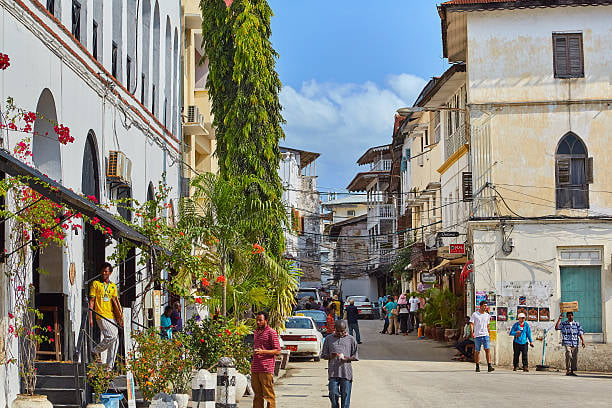
Backstreets of Stone Town, zanzibar.
The vibrant streets of zanzibar are filled with the rhythmic sounds of bargaining and laughter.
Here, practical swahili phrases and even specific shopping phrases help travelers navigate local markets with ease.
Asking “Hoteli iko wapi?” or “Ningependa kwenda [Place name]” can transform a simple inquiry into a delightful conversation that deepens your understanding of the island’s everyday life.
In busy marketplaces, effective communication is essential.
Vendors and customers in zanzibar use a mixture of swahili phrases and basic English to negotiate prices and share recommendations.
Whether you are trying to purchase a handcrafted souvenir or find your way through the labyrinthine alleys of stone town, every exchange reinforces the role of language in forging connections.
Even a well-timed “speak” of a common phrase can smooth the way in these bustling urban areas.
Language and Cultural Identity
How Language Shapes Personal and Community Identity
In Zanzibar, language is far more than a tool for conversation—it is a living emblem of identity.
The way swahili is spoken, the rhythm of each phrase, and the informal nuances shared between friends all contribute to a vibrant sense of self among the island’s population.
Every swahili phrase carries echoes of ancestral wisdom and collective memory, reaffirming that the language here is a bridge between individual identity and the broader culture.
For many local people, the act of speaking their native language is deeply intertwined with personal pride.
Whether in a casual conversation at a local café or during formal gatherings in stone town, the sound of swahili resonates with the shared experiences of a population that values history and community.
It is this legacy that has sustained the island’s traditions through centuries of change and modernization.
Influence of Language on Local Customs and Traditions
Traditional customs in Zanzibar are inseparable from its language.
Every swahili phrase—from greetings to proverbs—reflects values and norms that have been passed down through generations.
In many families, the art of storytelling is taught through the careful practice of language, reinforcing moral lessons and the importance of community solidarity.
For instance, during festive occasions in stone town, elders recite age-old verses in swahili that highlight the intertwining of religion and daily life.
The influence of language also extends to matters of religion, where the spoken word plays a key role in both public sermons and private prayers.
In a region where the majority of muslims celebrate their faith, the careful articulation of swahili phrases during religious gatherings underscores the deep connection between language and spirituality.
Local leaders often emphasize that the respectful use of phrases in prayer and daily conversation is a form of cultural preservation—a sentiment echoed by government initiatives in mainland tanzania and beyond.
Language and Local Arts
Artistic expression in Zanzibar finds its voice in the lyrical cadence of swahili.
From traditional music to modern poetry, the language here serves as both inspiration and medium.
In vibrant stone town neighborhoods, local artists perform songs that weave together swahili phrases and historical narratives, creating an immersive experience that celebrates the island’s artistic heritage.
These creative expressions are not only a feast for the ears but also a testament to how deeply language is woven into the fabric of everyday life.
Performances in public squares and cultural centers demonstrate that the power of language lies in its ability to tell stories of the past while inspiring new generations.
Whether reciting a well-known proverb or inventing new phrases that capture contemporary experiences, local artists continue to honor the legacy of swahili language.
In doing so, they remind us that language is a living art form—one that is continually evolving yet always rooted in the shared history of Zanzibar’s population.
Language, Tourism, and the Economy
Communication and Interaction with Tourists
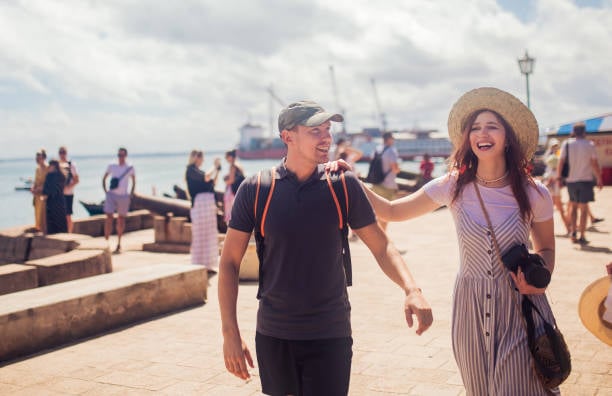
Tourism in Zanzibar thrives on the ability to bridge cultural divides through effective communication.
Visitors from all over africa and beyond are drawn to the island not only for its scenic beauty and beautiful sandy beaches but also for its warm, welcoming language.
Many travelers find that mastering a few key swahili phrases can significantly enhance their experience, fostering genuine interactions with the local people.
Every conversation, whether in a bustling market or a quiet café, reinforces the idea that language is a powerful tool in the tourism sector.
When tourists take the time to use local swahili phrases and even attempt to speak english mixed with local expressions, it creates a sense of camaraderie and mutual respect.
This open exchange of phrases not only benefits visitors but also supports the local economy by strengthening the bonds between zanzibar businesses and their clientele.
Bargaining, Shopping, and Market Phrases in Zanzibar City
The lively streets of zanzibar offer a vivid glimpse into everyday life where the art of bargaining is both a skill and a social ritual.
Here, travelers are encouraged to practice essential shopping phrases while exploring local bazaars.
Whether you’re inquiring “Bei ni shilingi ngapi?” or engaging in friendly banter, these exchanges underscore the importance of language in creating economic opportunities.
The blend of traditional and modern elements in zanzibar city is palpable.
The familiar sounds of swahili phrases resonate through every transaction, echoing the island’s storied history from the days of stone town to the present.
Even as modern influences from mainland tanzania and beyond continue to shape the urban landscape, the use of indigenous language remains central to fostering trust and a sense of community among both vendors and tourists.
It is this dynamic interplay that fuels a thriving local economy and inspires many to embark on a true zanzibar adventure.
Impact on Local Businesses and Economic Growth
The economic fabric of Zanzibar is deeply intertwined with its language.
Local businesses, especially in zanzibar, rely on the everyday exchange of swahili phrases to connect with customers and build lasting relationships.
Whether negotiating prices in a market or sharing recommendations for hidden gems, the role of language is undeniable.
By making an effort to use even a few key expressions, tourists contribute to a cycle of cultural exchange that directly benefits the local population.
This active exchange fosters an environment where both local entrepreneurs and visitors thrive.
When tourists show interest in learning local phrases and participate in the vibrant marketplace atmosphere, they help preserve centuries-old traditions while simultaneously boosting economic growth.
The resulting synergy between commerce and language is one of the many reasons Zanzibar continues to be a beacon for travelers across east africa.
Biodiversity and Environment in Zanzibar

The Role of Language in Environmental Preservation
Beyond its urban centers, the natural environment of Zanzibar is equally steeped in tradition and language.
The island’s diverse ecosystems—ranging from lush forests to low lying coastal plains—have long been protected by local wisdom passed down in familiar phrases and oral traditions.
This indigenous language not only captures the natural beauty of the island but also serves as a guide to sustainable practices that have been refined over generations.
Local environmental stewards often use swahili phrases to describe the delicate balance between human activity and nature, emphasizing the importance of living in harmony with the land.
The knowledge embedded in these expressions has helped preserve Zanzibar’s unique biodiversity for centuries, serving as a living record of how natural resources can be respected and maintained.
Such practices, widely appreciated by conservationists across africa, highlight the powerful role of language as a tool for environmental advocacy.
Tourism Impact on Biodiversity and Conservation Efforts
While tourism brings significant economic benefits, it also places pressure on Zanzibar’s fragile ecosystems along its coast.
However, local communities have found that by using well-practiced swahili phrases to educate visitors on conservation efforts, they can encourage sustainable tourism practices.
The interplay between economic growth and environmental stewardship is evident along the east coast of the island, where initiatives seek to balance visitor experiences with nature preservation.
Efforts to maintain ecological balance are communicated through traditional language and modern environmental policies alike.
These community-led campaigns, which resonate across Sub Saharan Africa, demonstrate that careful, respectful communication can safeguard the natural wonders of Zanzibar while still welcoming tourists from across africa and the wider world.
Education and Language Preservation
Education Initiatives in Mainland Tanzania and Zanzibar
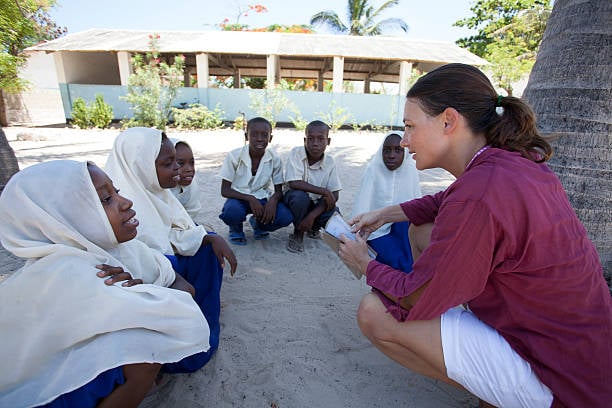
The future of Zanzibar’s language depends heavily on robust educational initiatives.
In both Zanzibar and mainland tanzania, schools and community centers work tirelessly to ensure that children learn not only modern subjects but also traditional Swahili phrases and cultural expressions.
The incorporation of official languages into curricula ensures that each new generation understands the rich history embedded in every word they speak.
Educational policies, often championed by the government of mainland tanzania and local institutions, place a high value on education as a means of cultural preservation.
In classrooms across the island, teachers emphasize that language is a living legacy—one that must be maintained through regular practice and active use.
This commitment is reflected in everyday lessons, where students learn both swahili language and essential phrases that have been passed down from elders.
Future Prospects for the Swahili Language and Other Languages
Looking forward, the challenge of preserving the swahili language is met with innovative approaches in both digital and traditional settings.
Many educators are now integrating technology to teach swahili phrases alongside other official languages, ensuring that students not only speak english but also maintain fluency in their native tongue.
In some schools, teachers highlight the importance of not only the swahili language but also of understanding other languages that enrich the island’s multicultural identity.
Efforts to bolster literacy include introducing programs that encourage writing and reading in swahili—a language that is as much about heritage as it is about communication.
In addition, the curriculum now often covers the historical significance of the two official languages used in the region, ensuring that both swahili language and English are given due importance.
Through such initiatives, the island’s language is continuously celebrated and passed on, reinforcing the bond between education and cultural pride.
Conclusion
Recap of Key Insights
In summary, Zanzibar is a living testament to how language shapes a community’s history, identity, and daily life.
From the ancient corridors of stone town to the modern streets of zanzibar, the enduring charm of swahili phrases continues to connect the population with their heritage.
Whether you are drawn to the island for its beautiful sandy beaches, vibrant markets, or the rich legacy of mainland tanzania, it is clear that the language in Zanzibar is a dynamic force that both reflects and reinforces the island’s unique culture.
Encouraging Engagement and Continued Learning
We invite you to embrace this linguistic adventure.
By learning a few essential Swahili Phrases and engaging with the local culture, you contribute to the preservation of a language that has been refined over centuries.
Whether you are a curious tourist, an academic interested in africa’s diverse countries, or a lifelong learner, let your next visit be a journey of discovery—not just of sights and sounds, but of the soul of Zanzibar.
Take the leap, explore the streets of stone town, converse in the local language, and let every word you exchange deepen your connection to this enchanting part of east africa.
Your willingness to learn, adapt, and appreciate the local dialects not only enriches your travel experience but also helps sustain the vibrant legacy of Zanzibar’s language.
Join the community of travelers who have discovered that the true magic of Zanzibar lies in its people, its history, and the heartfelt swahili phrases that continue to echo through every alley and market stall.
Final Thoughts
Now is the time to plan your journey.
Embrace the language in zanzibar as a gateway to an immersive cultural experience.
Whether you are negotiating prices, admiring the ancient architecture of Stone Town, or simply greeting a friendly local with a warm “Jambo!”, remember that every interaction is an opportunity to learn and grow.
We encourage you to take the first step—download a phrasebook, enroll in a local class, or simply practice a few swahili phrases before your trip.
Let your adventure in Zanzibar be more than just sightseeing; let it be a journey into the heart of africa, where every word tells a story and every conversation is a celebration of life.
Engage, explore, and experience the magic of Zanzibar for yourself!



